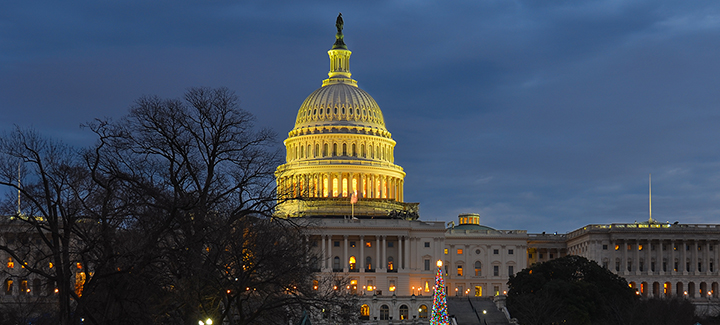H.R. 723 - Energy Savings Through Public-Private Partnerships Act

H.R. 723 - Energy Savings Through Public-Private Partnerships Act
The Energy Savings Through Public-Private Partnerships Act of 2017 (H.R. 723) was introduced in the U.S. House of Representatives by Alliance Honorary Board Members Reps. Adam Kinzinger (R-Ill.) and Peter Welch (D-Vt.) on January 30, 2017. The bill has been introduced in the previous two Congresses as H.R. 1629 in the 114th Congress and H.R. 2689 in the 113th Congress. H.R. 723 was reported favorably by the House Energy & Commerce Committee on June 7, 2017.
A similar version of the bill was introduced in the U.S. Senate (S. 239) by Sen. Cory Gardner (R-Colo.) on January 30, 2017. Alliance Honorary Chairwoman Sen. Jeanne Shaheen (D-N.H.) and Alliance Honorary Vice-Chairs Sen. Chris Coons (D-Del.) and Sen. Rob Portman (R-Ohio) co-sponsored the bill. Most recently, S. 239 was reported favorably out of the Senate Committee on Energy and Natural Resources and placed on the Senate Calendar on May 24, 2017.
An identical version of this bill was passed by the Senate (85-12) as Section 1006 of S. 2012, the Senate version of the comprehensive energy bill which failed in conference at the end of the 114th Congress.
Summary
This bill would amend the National Energy Conservation Policy Act to promote contracts between federal agencies and private contractors to increase energy efficiency upgrades in federal facilities.
Key Provisions
The National Energy Conservation Policy Act would be amended by changing “may” to “shall”, which would require federal energy managers to implement any energy or water saving measure that is life cycle cost-effective (as determined by a comprehensive energy and water evaluation). Energy conservation measures would also be expanded to include energy consuming devices and required support structures. Agencies would have to accurately report the operation and maintenance savings associated with modernizing or replacing systems with energy or water conservation measures. Agencies would be able to transfer or sell energy savings and apply the proceeds to fund a new performance contract.
The Secretary of Energy would have to report the status and investment value of each agency’s energy savings performance contracts and utility energy service contracts, the plan for entering into such contracts in the coming year, and information explaining why any previously submitted plans for such contracts were not implemented. In addition, there would be two new additions to define energy savings:
- The use, sale, or transfer of energy incentives, rebates, or credits from federal, state, or local governments or utilities.
- Any revenue generated from a reduction in energy or water use, from more efficient waste recycling, or from additional energy generated due to more efficient equipment.
STAY EMPOWERED
Help the Alliance advocate for policies to use energy more efficiently – supporting job creation, reduced emissions, and lower costs. Contact your member of Congress.
Energy efficiency is smart, nonpartisan, and practical. So are we. Our strength comes from an unparalleled group of Alliance Associates working collaboratively under the Alliance umbrella to pave the way for energy efficiency gains.
The power of efficiency is in your hands. Supporting the Alliance means supporting a vision for using energy more productively to achieve economic growth, a cleaner environment, and greater energy security, affordability, and reliability.



